
13 Jul Foods to Improve Your Mental Health
Your mental health affects your entire life. What you choose to eat influences your mood in more ways than one. Below are some meal and snack ideas that are high in fibre, protein and contain mood and gut-loving components. Fibre and protein will help you feel fuller for longer and dampen the desire to reach for the not so healthy food choices. These foods have a direct negative impact on your brain and the health of your gut. When your brain is not healthy it impacts your mood and mental wellbeing. Around 90% of your serotonin or feel-good hormone is made in your gut.
The foods listed below are low glycaemic index (GI) meaning they will help provide a gradual release of sugar into your blood and sustained energy. Use the power of your diet to improve your mental health for your best quality of life.
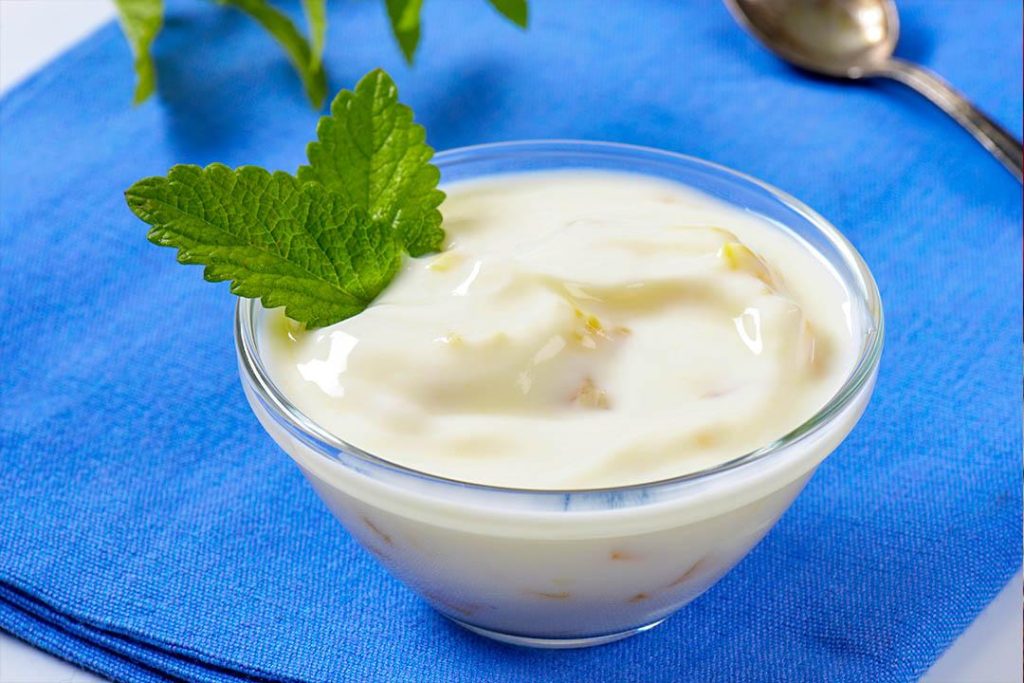
Yoghurt
Yoghurt is low GI, high in protein as well as probiotics. Probiotics are the good bacteria in your guts which help you to stay strong and healthy, promoting an optimal metabolism, mood, and immune function.
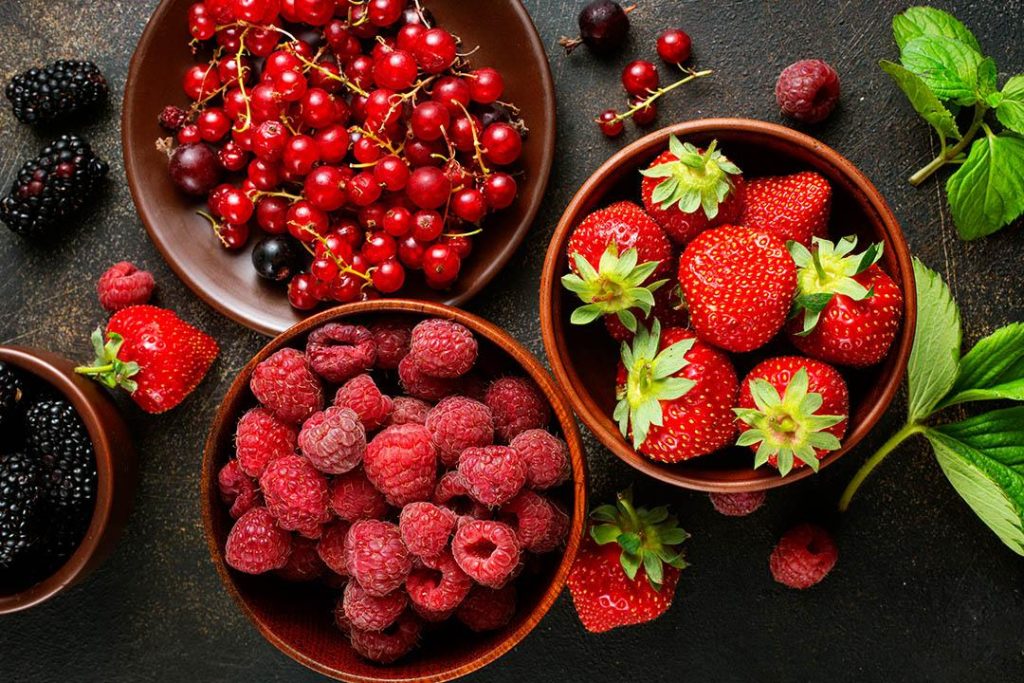
Berries
High in fibre as well as many antioxidants, vitamins, and minerals to help your body’s cells work at their optimum.
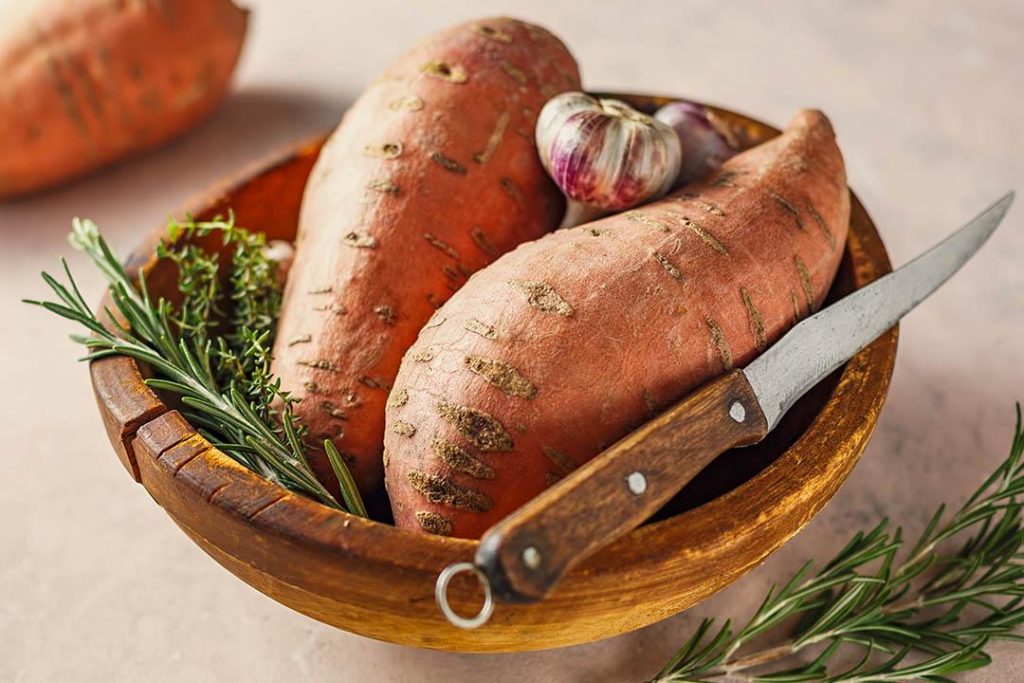
Sweet Potato
Sweet Potatoes are a great source of vitamin A that is needed to support optimal immune system function. Sweet potatoes are also high in fibre and low GI keeping you feeling fuller for longer.
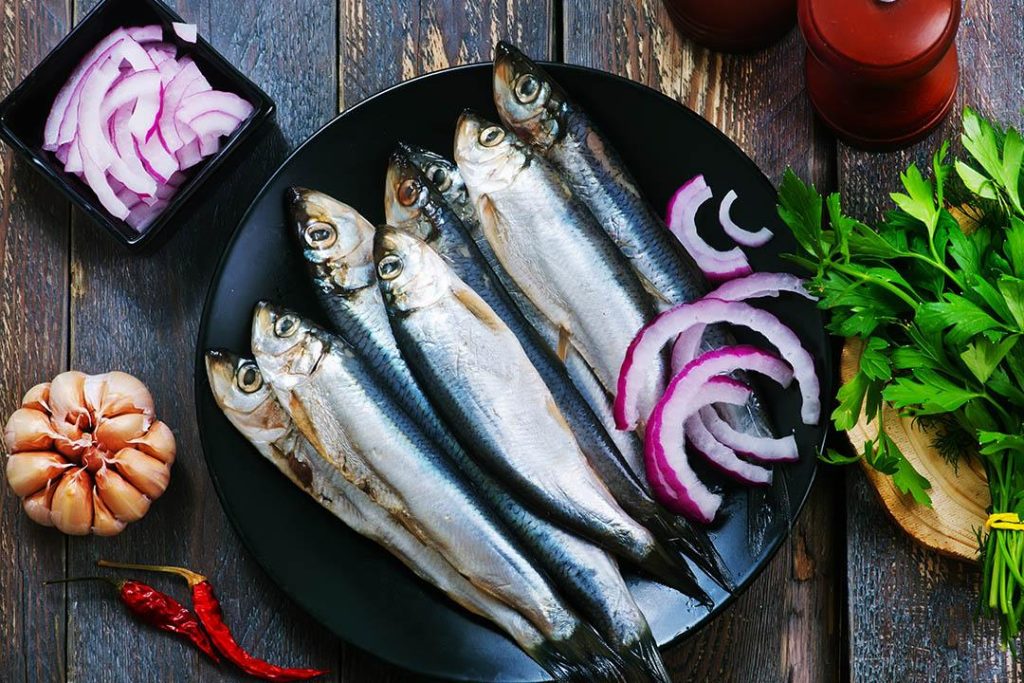
Fish
Research has linked fish to many health benefits including improvements in mood. Seafood is also a great source of protein, omega-3 fat, iodine, and vitamin D to keep your bones strong, skin healthy and mind sharp.
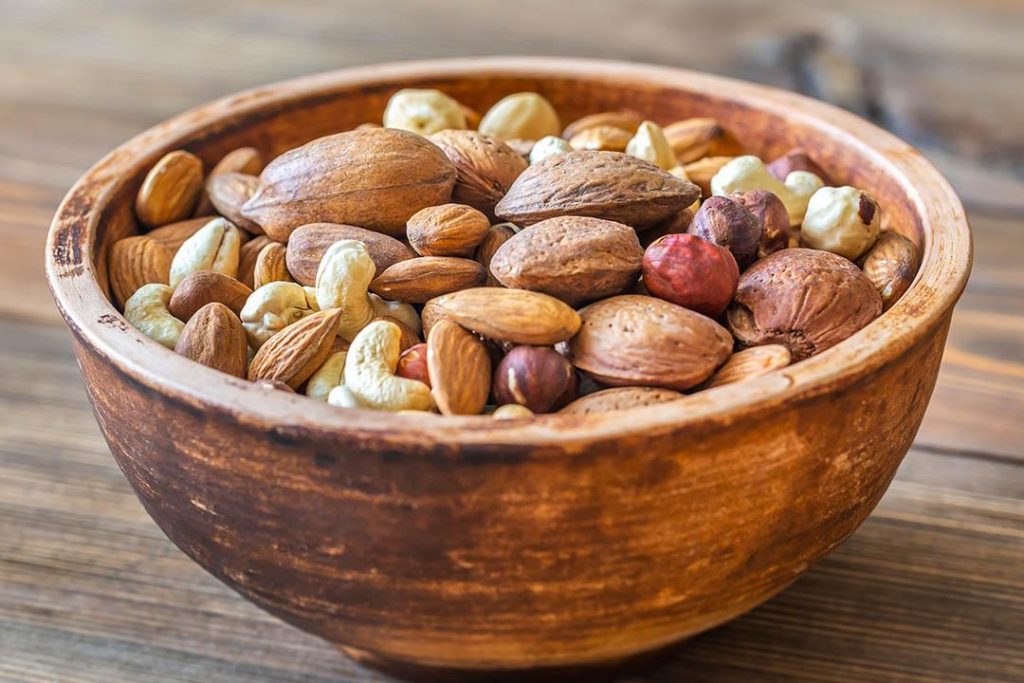
Nuts
A fantastic source of healthy fats and protein to keep you feeling fuller for longer. Walnuts are a great source of omega-3 fat that will help to lift your mood.
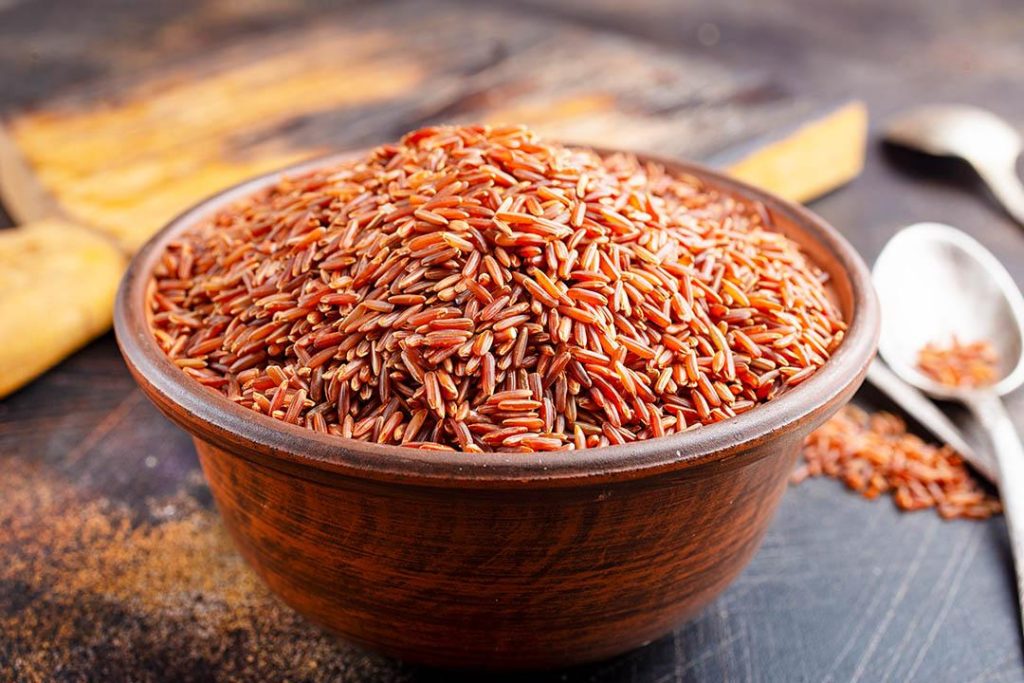
Whole grains
This includes couscous, brown rice and pasta, quinoa, corn. Whole grains are a source of prebiotics or the food that your probiotic bacteria need to function optimally. On top of this whole grains provide vitamins and minerals the refined grains do not like B vitamins. B vitamins are needed to create energy from the food you eat. Whole grains are also a great source of fibre and low GI carbohydrates. Try adding half a cup of these whole grains to your lunch or dinner and enjoy the richer taste the refined grains lack.
To put these foods in snack and meals here are some ideas to get you started.
- 200g low-fat yoghurt with half a cup of berries and a small handful of nuts. Try adding a pouch of South Australian Gourmet Food Company Fruit Custard with Added Fibre with 10.9g of dietary fibre.
- 2-3 wholegrain biscuits topped with tuna (95g in spring water) with a handful of spinach or kale.
- Half a cup of brown rice and a sauce using a cup of spinach, tomato, and any other vegetables you desire with 100g salmon.
- Warm Sweet Potato Salad. Roast the sweet potato in slices cooked in olive oil and seasoned with herbs and spices of your choice, add a cup of spinach or kale, a small handful of walnuts and half a cup of couscous.
- Half a cup of wholegrain pasta topped with a sauce using tinned tomatoes, basil and oregano as herbs, 100g tinned tuna in spring water, olives and a small handful of low-fat cheese.
Take home message: Eating well does not need to be difficult or tasteless, so experiment with what works for you and your budget. Looking after your mental health will allow you to get the most out of your day.
